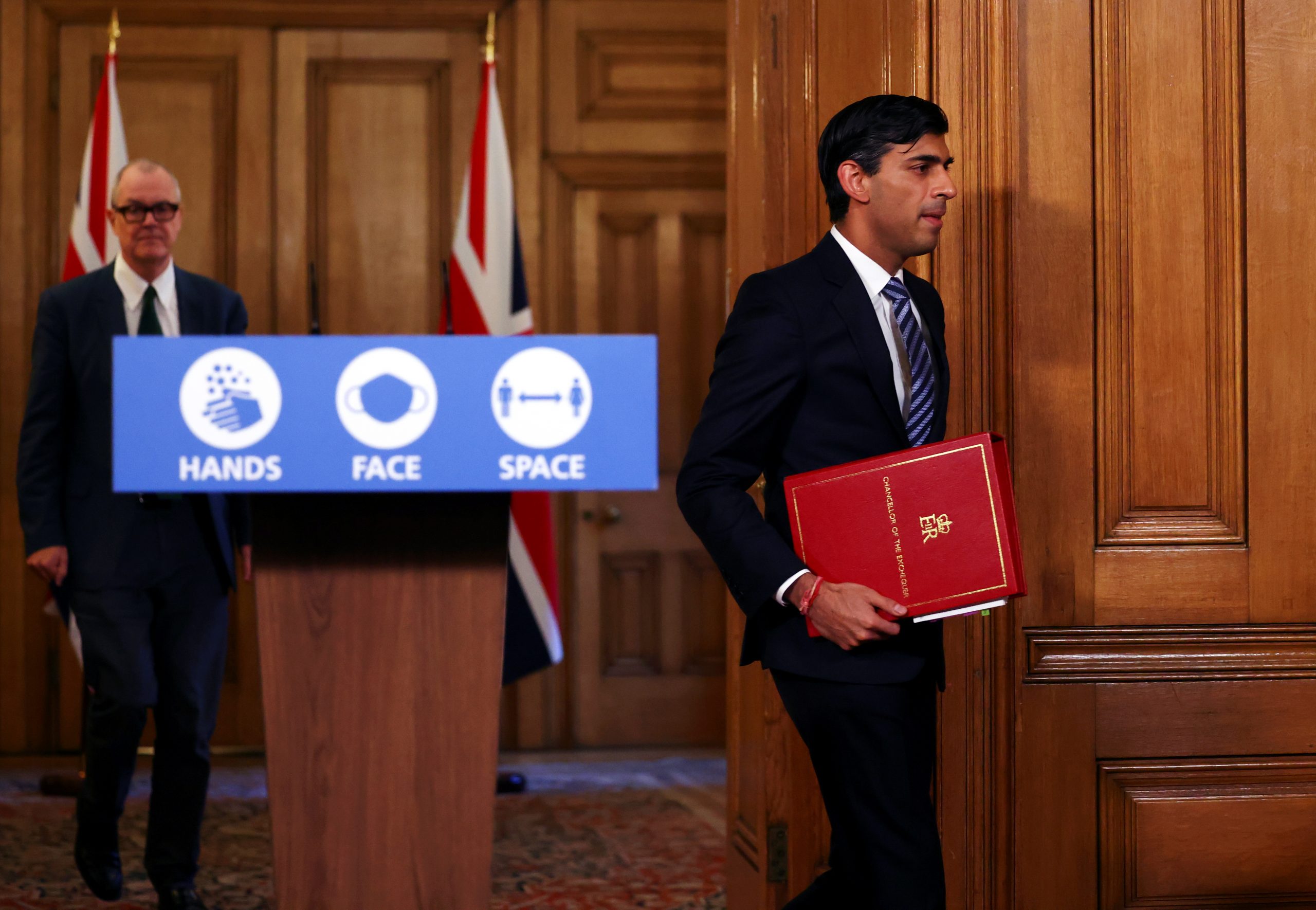
Rishi Sunak has announced that the furlough scheme will be extended across the UK until the end of March, concluding his gradual U-turn on coronavirus spending since the summer, and signalling his definitive defeat in the internal government battle over its pandemic response.
Since the first lockdown was eased, Sunak has believed that the economy should no longer be on a wartime footing. Instead, he favoured reopening in order to stimulate growth, aided by schemes such as Eat Out to Help Out, while trying to rein in public spending relative to the first lockdown with less generous wage support and targeted, rather than national, coronavirus restrictions. His preferred strategy is to run the economy “hot” (as one Treasury figure put it to me): keeping as much of it open as possible for the sake of livelihoods and the longer-term well-being of the UK, with an accepted level of virus transmission.
The problem is that Sunak did not pursue his economic approach in lockstep with Matt Hancock’s health response: as Stephen and I have written repeatedly, there were effectively two coronavirus strategies over the summer that systematically undermined and undid the work of the other.
Rather than unlocking gradually enough such that new coronavirus cases would increase in tandem with growing test and trace capacity, Britain unlocked fast in order to save the economy. In multiple tiny ways, the economic incentives (for example, for individuals to go to restaurants and sit indoors less than two metres from someone, without a mask, in order to shore up the ailing hospitality industry) contradicted the clear health guidance. Now, after months of the government urging maximum reopening, cases have increased such that the NHS is at serious risk of being overwhelmed, and Rishi Sunak’s worst nightmare has come to pass: a second national lockdown in England, and a return to putting the economy on emergency life support.
The lesson seems to be that if Rishi Sunak had wanted to keep the economy open, his focus should have been on the public health measures that contain the virus, and the economic policies that support that approach, rather than reopening at a pace that our public health infrastructure couldn’t cope with.
For all that Matt Hancock and Rishi Sunak’s approaches are framed as polar opposites (emergency support for a temporary crisis, versus a preference for adapting and living with the virus) a successful version of each strategy would have looked broadly the same: for Matt Hancock’s public health strategy to work, it would need to be perfectly supported and reinforced by the Treasury; for Sunak’s approach to work, it would need to be supported by a much more robust test, trace and isolate system, part of which was within the gift of Sunak himself (it was within his remit, for example, to increase statutory sick pay to a level that would have allowed people to comfortably follow health guidance).
It has taken a second lockdown to finally bring the health and economic responses into line, as they were during the first lockdown. In future, the sign of a viable government strategy will be if we can no longer talk about different ministers’ individual coronavirus strategies, but instead about one coronavirus strategy, even as restrictions are eased.
[see also: Boris Johnson’s fate rests with Rishi Sunak – a sign the Prime Minister has already failed]






